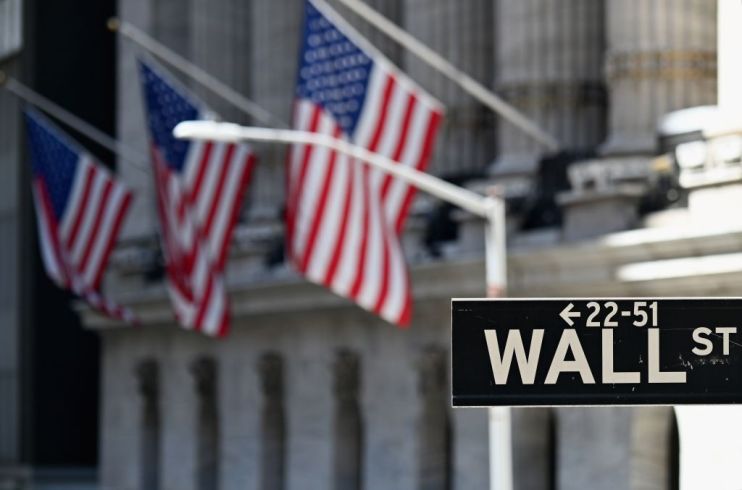Wall Street ticks up as FTSE 100 sinks into red amid Covid-19 case worries

Wall Street crept marginally higher this afternoon and the FTSE 100 dropped again as investors weighed up the global economic recovery and pockets of rising coronavirus cases.
London’s blue-chip index closed down almost 0.19 per cent at 6,001 points, while the FTSE 250 climbed 0.24 per cent.
US markets opened in the red before reversing their fortunes to make marginal gains.
The S&P 500 rose 0.14 per cent, the Dow Jone was trading 0.21 per cent higher and and the Nasdaq Composite gained 0.36 per cent.
Germany’s Dax was down nearly one per cent while France’s CAC 40 was 0.9 per cent lower.
Asian stocks rose overnight, however, buoyed by Wall Street’s seemingly unstoppable rise.
China’s CSI 300 climbed 0.9 per cent. Japan’s Nikkei gained 0.2 per cent but Hong Kong’s Hang Seng rose 1.2 per cent.
The dollar was roughly flat against a basket of other currencies. The pound was slipped to $1.31 on bad news emanating from the Brexit talks.
Neil Wilson chief market analyst at Markets.com said: “Sterling fell back to session lows with a view to the week lows being tested after Brexit talks seem to have gone nowhere. The two sides are still too far apart. Specifically, the EU wants to agree on fisheries and state aid rules before making progress on anything else. EU demands for a level playing field are non-negotiable if there is to be more than a low-level agreement.”
US stocks continued their record-breaking run yesterday. The tech-heavy Nasdaq hit a new all-time closing high, reflecting the huge amounts of investor cash being poured into big tech names such as Apple and Amazon.
Wall Street buoyed by upbeat data
US stocks initially languished in the red when markets opened in New York this afternoon, but soon climbed back to modest gains.
The turnaround came after new data showed the US private sector grew at the fastest pace in a year and a half.
The IHS Markit composite purchasing managers’ index – a respected gauge of business output – rose to 54.7 in August from 50.3 in July.
“The market will move higher, but it will be very slow and irregular one, at least until there’s a vaccine,” said Chuck Lieberman, chief investment officer at Advisors Capital Management.
“We’re still gradually reopening, and setbacks are on their way. It makes people concerned at times.”
Wall Street was also propped up by Apple’s shares, which gained two per cent in a fourth consecutive day of gains.
The recent rally has taken the tech giant’s valuation to record highs, with Apple becoming the first US company to reach a $2 trillion market capitalisation.
Coronavirus cases spook FTSE 100
Wall Street shrugged off worrying words from the US Federal Reserve on Wednesday. The central bank warned that coronavirus is “posing considerable risks to the economic outlook”.
However, the Fed’s words seemed to do more damage to European stocks than US. The FTSE 100 shed 1.6 per cent yesterday.
On top of worries about the economy, France reported 4,770 new cases on Thursday, the highest since mid-April. Spain recorded 3,350 new infections and Germany recorded more than 1,500 inflections in the 24 hours through to Friday morning.
“If there was hope the FTSE 100 could pick itself back up after Thursday’s big stumble then Friday has only brought disappointment as the index slipped back modestly to trade below the 6,000 mark for the first time since late July,” said AJ Bell investment director Russ Mould.
“It feels like the market is gradually coming to the realisation that the world is going to have to live with Covid-19 for longer as countries which have emerged from lockdown experience localised flare-ups and a general increase in infections.
Yesterday, figures from the US showed that weekly new jobless claims had risen above the 1m mark again. Investors hope the Republicans and Democrats can soon thrash out a new stimulus deal.
In the UK, data this morning showed retail sales climbed about their pre-coronavirus level in July. Separate data showed that UK public debt topped £2 trillion for the first time in history.
However, Ruth Gregory of Capital Economics said retail sales are likely to slow “now that the initial boost from re-opening has passed and fiscal support measures are being phased out”.